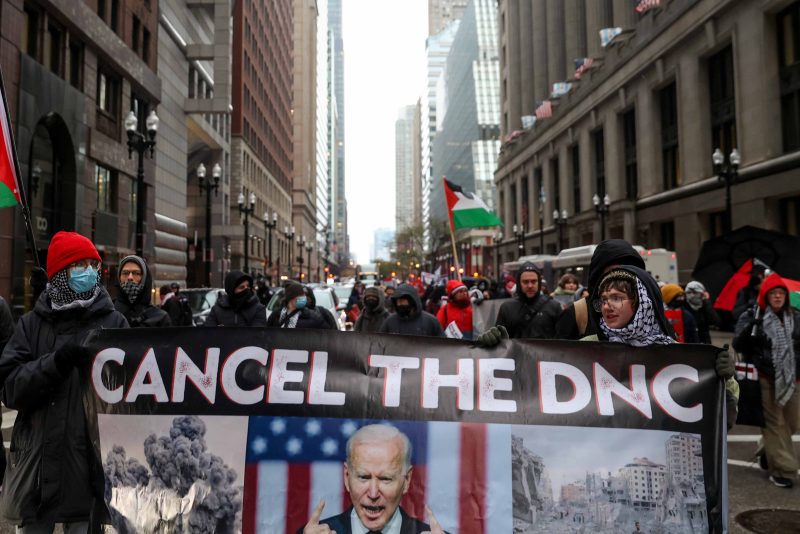The upcoming Democratic National Convention, scheduled for August, has been a topic of discussion due to the expected massive protests that are being anticipated. The convention is a significant event where the Democratic Party gathers to nominate its presidential candidate, set its agenda, and promote unity within the party. However, the potential for protests adds an element of uncertainty and raises questions about how the party and law enforcement will handle the situation.
Protests have become a common occurrence at political events, especially in recent years as societal tensions and political divisions have heightened. The August convention, which is likely to draw a large gathering of activists, demonstrators, and supporters, presents an opportunity for various groups to voice their concerns and advocate for their causes.
One of the main reasons behind the anticipated protests is the diverse range of issues that different groups may want to address. From climate change to racial justice, healthcare, immigration, and economic inequality, there is a plethora of topics that could fuel demonstrations and rallies outside the convention venue.
Moreover, the Democratic Party itself is experiencing internal divisions and ideological differences that could also contribute to the protest atmosphere. Progressive factions may clash with more moderate or establishment elements within the party, leading to tensions both inside and outside the convention hall.
Another factor that may escalate the protests is the presence of counter-protest groups or individuals who seek to disrupt or oppose the messages being put forth by the primary demonstrators. This dynamic can create a contentious environment and potentially lead to confrontations if not managed carefully by law enforcement and event organizers.
In response to the expected protests, local authorities and convention organizers are likely to implement security measures to maintain order and ensure the safety of attendees. However, balancing the right to free speech and peaceful assembly with the need for security and public safety can be a delicate task, especially in a charged political climate.
The role of the media in shaping the narrative around the protests is also crucial. Coverage of the demonstrations can influence public perception, political outcomes, and the overall impact of the protests on the democratic process. Journalists and news organizations will need to provide accurate and balanced reporting to help the public understand the motivations and demands of the protesters.
Ultimately, the anticipated protests at the Democratic National Convention underscore the complex and multifaceted nature of American politics in the 21st century. As the country grapples with social, economic, and political challenges, the right to protest remains a fundamental aspect of democracy, providing individuals and groups with a platform to voice their grievances and push for change. The August convention will be a test of how well the Democratic Party and law enforcement can navigate these challenges while upholding democratic values and ensuring the safety and security of all involved.

